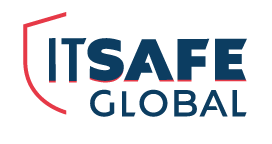Compliance
1. Alignment with Key Regulations:
- NIS2 (Network and Information Security 2 Directive): CSOF incorporates security controls and measures that align with NIS2 requirements for risk management, incident reporting, and security audits. This includes robust access controls, data encryption, vulnerability management, and incident response planning.
- DORA (Digital Operational Resilience Act): CSOF enhances operational resilience, a key requirement of DORA, through features like business continuity and disaster recovery planning, regular testing of resilience measures, and mechanisms for managing ICT third-party risks.
- GDPR (General Data Protection Regulation): CSOF embeds data protection principles in its core, adhering to GDPR's "data protection by design" concept. This includes data minimization, purpose limitation, and robust data security measures.
2. Specific Compliance Features:
- Data Security: CSOF offers multi-layered encryption, secure data storage, and access controls to protect personal data and comply with GDPR requirements.
- Data Subject Rights: CSOF facilitates the exercise of data subject rights, such as the right to access, rectification, and erasure, enabling compliance with GDPR data subject requests.
- Risk Management: CSOF supports a strong ICT risk management framework, enabling organizations to identify, assess, and mitigate digital operational risks in line with DORA requirements.
- Incident Reporting: CSOF provides mechanisms for reporting security incidents to competent authorities, as required by NIS2, ensuring timely and accurate reporting.
- Security Audits: CSOF supports regular security audits and assessments, helping organizations demonstrate compliance with NIS2 and other relevant standards.
3. Continuous Compliance:
- Regular Updates: CSOF is continuously updated to reflect the latest security standards and regulatory requirements, ensuring ongoing compliance.
- Expert Support: ITSAFE Global provides expert guidance and support to help you navigate the complex regulatory landscape and maintain compliance.
- Auditing and Certifications: CSOF supports the process of obtaining relevant security certifications, such as ISO 27001, further demonstrating your commitment to compliance.
4. By implementing CSOF, your organization can:
- Reduce compliance risks and avoid potential penalties.
- Build trust with customers and stakeholders by demonstrating a strong commitment to security and data protection.
- Gain a competitive advantage by showcasing your compliance with recognized security standards.
- Streamline compliance processes with automated tools and centralized management.
CSOF not only helps you achieve compliance but also fosters a culture of security within your organization. This proactive approach to compliance strengthens your overall security posture and ensures that you are well-prepared to meet the evolving regulatory landscape.
